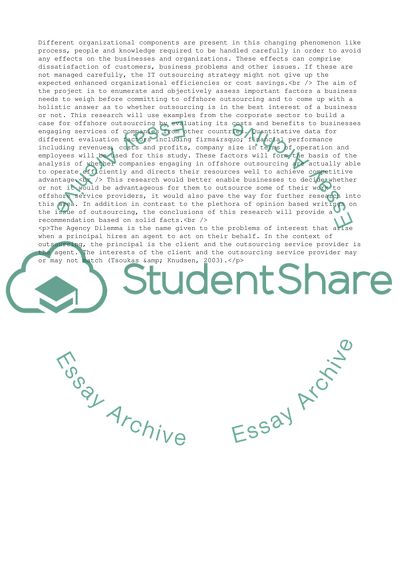Cite this document
(Can Business Process Outsourcing Provide a Competitive Advantage to Research Proposal, n.d.)
Can Business Process Outsourcing Provide a Competitive Advantage to Research Proposal. Retrieved from https://studentshare.org/business/1739210-it-outsourcing-changing-nature-of-work-and-its-competitive-advantage
Can Business Process Outsourcing Provide a Competitive Advantage to Research Proposal. Retrieved from https://studentshare.org/business/1739210-it-outsourcing-changing-nature-of-work-and-its-competitive-advantage
(Can Business Process Outsourcing Provide a Competitive Advantage to Research Proposal)
Can Business Process Outsourcing Provide a Competitive Advantage to Research Proposal. https://studentshare.org/business/1739210-it-outsourcing-changing-nature-of-work-and-its-competitive-advantage.
Can Business Process Outsourcing Provide a Competitive Advantage to Research Proposal. https://studentshare.org/business/1739210-it-outsourcing-changing-nature-of-work-and-its-competitive-advantage.
“Can Business Process Outsourcing Provide a Competitive Advantage to Research Proposal”. https://studentshare.org/business/1739210-it-outsourcing-changing-nature-of-work-and-its-competitive-advantage.


